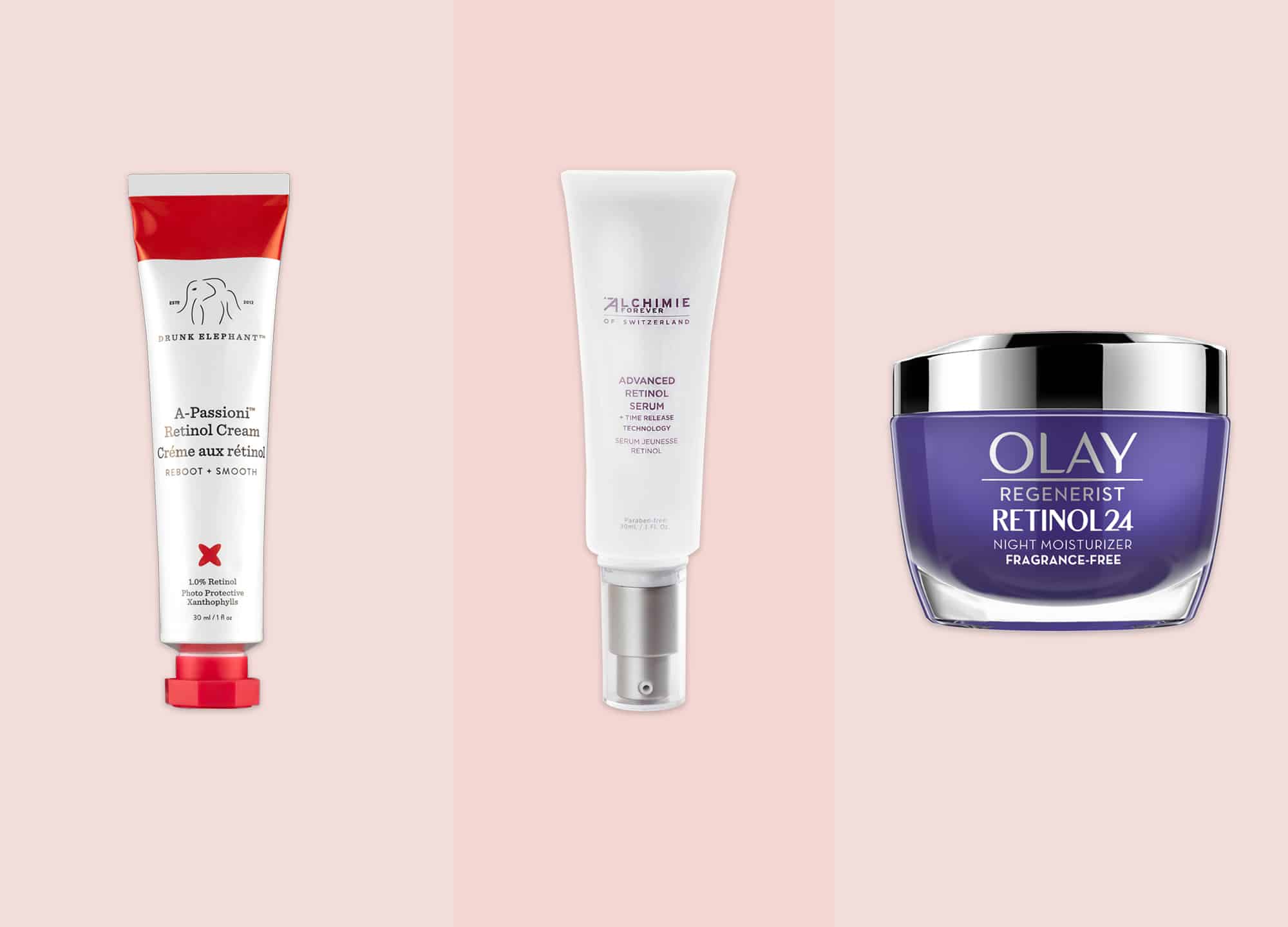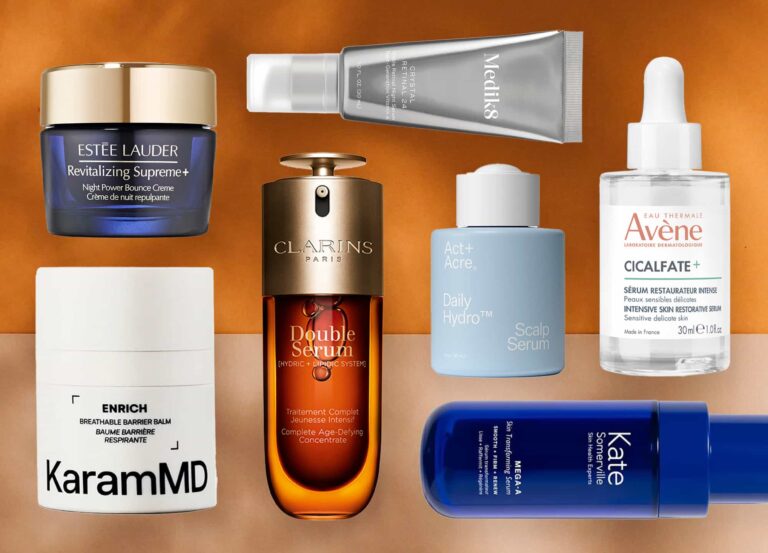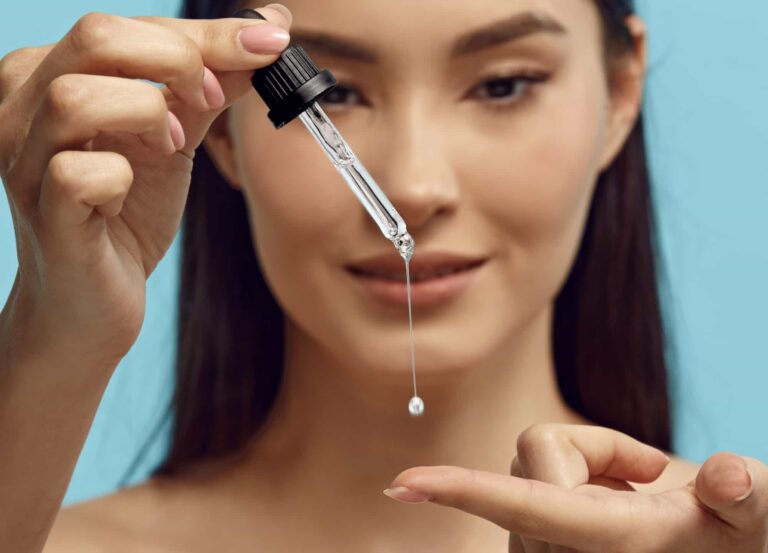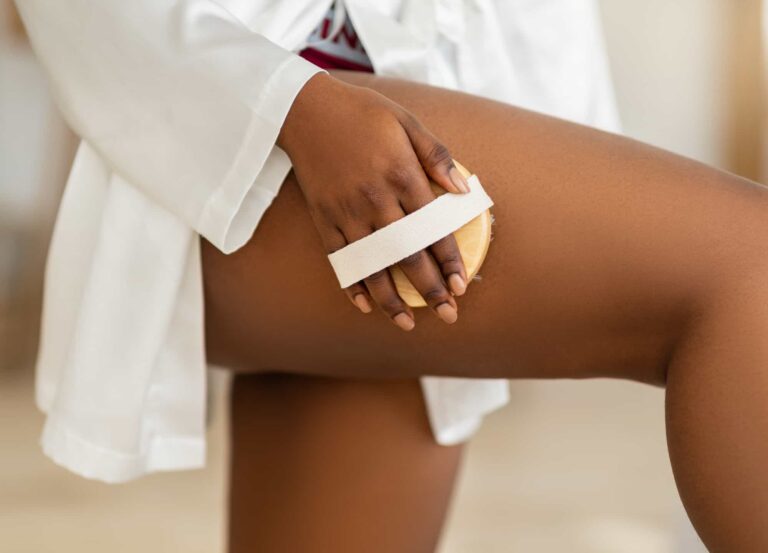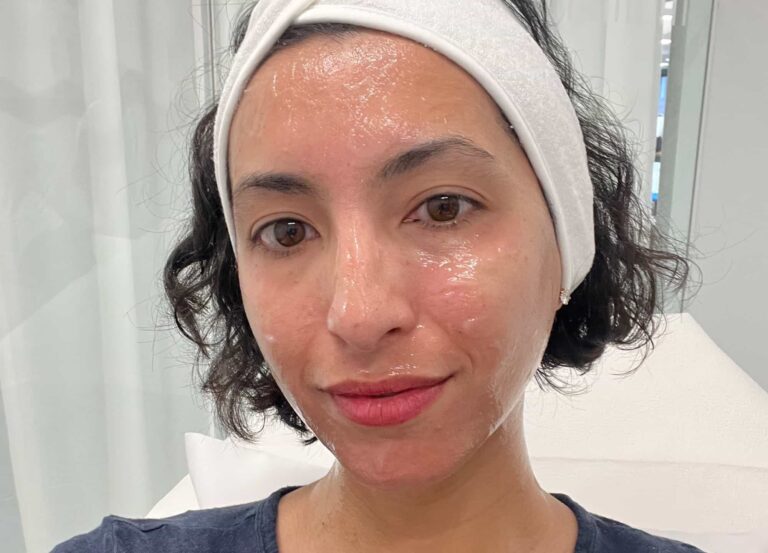Using retinoids is like cooking with cayenne pepper. You need the right amount to feel the effects, but a dash too much can overwhelm everything. For retinoid newbies, especially, ratcheting up a skin-care regimen with prescription tretinoin (aka retinoic acid or pure vitamin A, the active ingredient in Retin-A) is a lot like jumping in with a five-alarm chili—you may not be able to handle the burn.
Despite its potential to irritate, tretinoin is the holy grail anti-ager, precisely because of its proven potency. This multitalented, cell-normalizing agent is backed by several decades’ worth of peer-reviewed studies demonstrating its ability to do everything from boosting collagen growth to reducing sebum production and inhibiting pigment formation. Yet all that efficacy comes at a cost: an annoying stretch of redness and flaking. This is what derms call retinization—the two- to three-week-long adjustment period that skin goes through as it adapts to a retinoid.
Here’s where over-the-counter retinols come in. They’re a kinder, gentler retinoid, offering similar benefits as Rx versions, says Dr. Joshua Zeichner, a board-certified dermatologist in New York City. “Retinol and prescription tretinoin work via the same exact mechanism and the same pathway in the skin,” he explains.
A study in the Journal of Cosmetic Dermatology comparing 0.1% retinol to 0.1% retinoic acid found that both ingredients increased the thickness of the epidermis and the expression of collagen genes after four weeks—and that the retinol significantly reduced wrinkles after 12 weeks.
In the skin, retinol eventually transforms into retinoic acid through a sequence of enzyme reactions. Because this conversion process takes time, you have to wait longer to see results from retinol products, explains Dr. Zeichner. But on the upside, retinol’s slower action causes less irritation.
“I love retinols so much, I think they should be in every topical,” says New York City board-certified dermatologist Dr. Michelle Henry. “It’s hard to find a patient [for whom] I wouldn’t recommend them. There are now so many formulations that I can get patients with even the most sensitive skin on retinol once a week, to see the benefits.”
So, which ones rival the Rx-powered pack? Top dermatologists and beauty editors share their picks.
Alastin Renewal Retinol ($55)
Dr. Papri Sarkar, a board-certified dermatologist in Brookline, Massachusetts, loves this serum because it has different concentrations of retinol encapsulated in a lipid that gradually releases the active to limit irritation. She starts patients on the 0.25% option and graduates them to the 0.5% version once they build a tolerance. Soothing oat extract, bisabolol, and hydroxymethoxyphenyl decanone offset irritation.
Related: Retinol vs. Vitamin C for Skincare: Know the Difference and What’s Right for You
Alchimie Forever Advanced Retinol Serum ($99)
The 0.75% retinol complex is wrapped in a matrix designed to dissolve in the skin’s sebum. This delivery system substantially slows the release of retinol, allowing for a high level of the active ingredient with a reduced risk of irritation. Additional selling points, according to Dr. Tina Alster, a board-certified dermatologist in Washington D.C.: the blend contains hydrating hyaluronic acid, to cushion skin, and a proprietary mix of soothing botanicals, including antioxidant green tea.
Differin Adapalene Gel 0.1% Acne Treatment ($12.99)
“In my opinion, this is the best of the over-the-counter retinoids,” says Dr. Shari Marchbein, a board-certified dermatologist in New York City. It contains the retinoid adapalene, which is the first new active ingredient for acne treatment that’s FDA-approved at prescription-strength since the 1980s.
CeraVe Renewing Retinol Serum ($16.99)
Three ceramides help bolster the skin barrier to buffer against the irritating effects of retinol, making this potion another one of Dr. Marchbein’s favorites. Niacinamide and licorice root defend against redness and inflammation
Drunk Elephant A-Passioni Retinol Cream ($74)
Despite being formulated with 1% pure retinol, this luxe formula—a favorite of Dr. Henry—babies skin with its lipid-rich base.
Olay Retinol 24 ($38.99)
Olay contains two retinoids—retinol and an even gentler vitamin A derivative called retinyl propionate—and suspends them in oil droplets. According to Dr. Zeichner, retinyl propionate is one of the most tolerable forms of vitamin A because it must undergo three conversions to become retinoic acid—and the more removed a molecule is from retinoic acid in its natural state, the less likely it is to agitate.
Related: How Dermatologists Recommend Treating Dry, Winter Skin
RoC Retinol Correxion Deep Wrinkle Night Cream ($24.99)
This iconic cream combines retinol with glycolic acid to hike exfoliation for smoother, younger-looking skin, notes Cincinnati cosmetic chemist Kelly Dobos. Minerals, squalane, and shea butter pacify skin in the process.
Perricone MD Acne Relief Retinol Treatment & Moisturizer ($45)
RealSelf Deputy Editor Alix Tunell noticed a significant improvement in her skin’s radiance and overall tone after just one week of using this treatment. “It delivers nearly the same results as a chemical peel, but it does dry out my forehead and cheeks, so now I apply a richer moisturizer on top and only apply it three times per week,” she says.
SkinBetter Science AlphaRet Overnight Cream ($120)
Dr. Estee Williams, a board-certified dermatologist in New York City, praises the engineering behind this award-winning formula. Ethyl lactyl retinoate—a hybrid molecule born of a complex fusion of a retinoid and lactic acid—gradually releases its active ingredients, to maximize efficacy while curbing irritation. Added antioxidants, squalane, ceramides, and hyaluronic acid help make the blend less irksome than traditional retinol and tretinoin, according to a company-sponsored study.
SkinMedica Retinol Complex 0.25 ($62)
Dr. Henry calls this cream an ideal entry point into retinoids. The concentration of retinol is low enough that she isn’t concerned about it causing irritation, and the proprietary antioxidant complex encapsulates the anti-ager to ensure gradual release.
Sobel Skin Rx 4.5% Retinol Night Treatment ($105)
Don’t let the 4.5% retinol percentage scare you away, even though over-the-counter products max out at 2%, says Tunell. This one is highly potent, but its proprietary encapsulated delivery system and soothing ingredients, including chamomile and shea butter, keep your skin safe from inflammation.
La Roche-Posay Effaclar Adapalene Gel 0.1% Topical Retinoid Acne Treatment ($29.99)
Dr. Evan Rieder, a board-certified dermatologist in New York City, recommends this prescription-strength gel for its anti-aging benefits and ability to clear clogged pores, blackheads, and whiteheads.
The Ordinary Granactive Retinoid 2% in Squalane ($9.60)
Granactive retinoid is the trade name for hydroxypinacolone retinoate, which is the latest innovation in retinoids, according to Dobos. OTC retinoids typically have to be transformed into the active form, retinoic acid, in order to turn on receptors in the skin and begin doing their good work. But this one has been shown to interact directly without needing to be broken down first. The lipid-rich base promises a smooth delivery.







